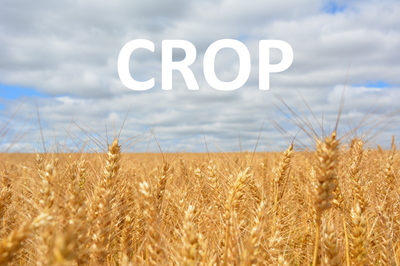CROP4Europe
Compound events and their impact on Crops in Europe | duration: 10/2023 - 09/2026 |
|
 |
CROP4Europe models the impact of weather extremes and compound events on crops using a wide range of methods at the subnational or county level in Germany. An innovative integrated approach to better understand and characterize the impacts of these events is developed with the aim to apply those to near-term future conditions and explore the creation of agroclimatic services. CROP generates new high-resolution data sets for crop yield, crop phenological and agricultural phases and a wide range of index and model-based data sets. Further hybrid approaches for bias-correction and downscaling of seasonal forecast and model simulations to relevant spatio-temporal scales for the assessment of extreme weather impacts on crop yield in terms of variability and losses are elaborated. CROP4Europe is part of the climXtreme Network which consists of several research institutions in Germany with the common goal to advance research on extreme events in the context of climate change. |
|
Module C focuses on the impacts of extreme events. Compound events are of particular relevance here, since, for example, the combined occurrence of different weather events or sequences of meteorological factors can amplify their impacts. The direct reference to the stakeholders' questions and data sets enables an intensive two-way exchange, which ensures the application-oriented usability and communication of the results for the participating non-scientific partners and includes the contributions from the other modules. CROP4Europe will contribute to the overarching questions of ClimXtreme II - Module C by following a combined approach that combines the identification of extreme events relevant for agriculture and their precursor mechanisms with a risk assessment of these events for Central Europe. The overall objective is to reduce risk uncertainty and improve understanding of the risks and impacts of combined events. CROP4Europe is based on a rational and well-defined work plan that combines methodological approaches and developments with the understanding of successive climate extremes, their impacts on the main crops in Central Europe and finally the preparation of appropriate and targeted information for stakeholders and policy makers as well as the support of the communication tasks of ClimXtreme II. |
|
The results of CROP4Europe have a wide range of implications for agriculture, industry, policy, insurance and finance. The information on how crop yields are affected by compound events at the European level is relevant for various applications and sectors, including agricultural productivity, food safety and security, and the business sector. The results will be relevant for climate change risk and impact assessments, extension services and policy makers to reduce market volatility, avoid price spikes and support crop breeding. National and regional agricultural authorities and farmers' associations (e.g. Hessischer Bauernverband, Deutsche Landwirtschafts-Gesellschaft), insurance companies (e.g. Vereinigte Hagel), food companies (e.g. Ferrero, Barilla), policy makers (e.g. DG-Agri, EC-JRC), financial institutions (e.g. ECB) and institutions/researchers in the field of phenological applications and modelling will be interested in the project results. Furthermore, the collaboration with the H2020 projects CLINT (climateintelligence.eu) and XAIDA (xaida.eu) strengthens the results of the process- and data-based approach and creates a novel physically informed ML-based plant model. JLU is also collaborating with the H2020 project BioValue, which is developing a dynamic and modular agent-based simulation tool to analyse the links between biodiversity, the agri-food value chain, the environment, consumer preferences and health. |
|
Center for International Development and Environmental Research (ZEU)
Department of Geography
Justus Liebig University, Giessen (Germany)
|
Center for International Development and Environmental Research (ZEU)
|
| Director of Science and Innovation and Chief Scientist of the World Meterological Organization, Switzerland |
|
|
|
|---|---|
| Freie Universität Berlin (FUB), Institute for Meteorology | |
| Albert-Ludwigs-Universität Freiburg (ALU) | |
| Deutscher Wetterdienst (DWD) | |
| Deutsches Geo-Forschungs-Zentrum (GFZ) | |
| Forschungszentrum Jülich | |
| Karlsruhe Institute of Technology (KIT) | |
| Potsdam Institute for Climate Impact Research (PIK) | |
| Technische Universität Dresden | |
| Universität Potsdam | |
| Universität Vechta | |
- Acknowledgement
 |
This project is generously funded as part of the FONA framework programme of the Federal Ministry of Education and Research (BMBF). |  |
|---|
